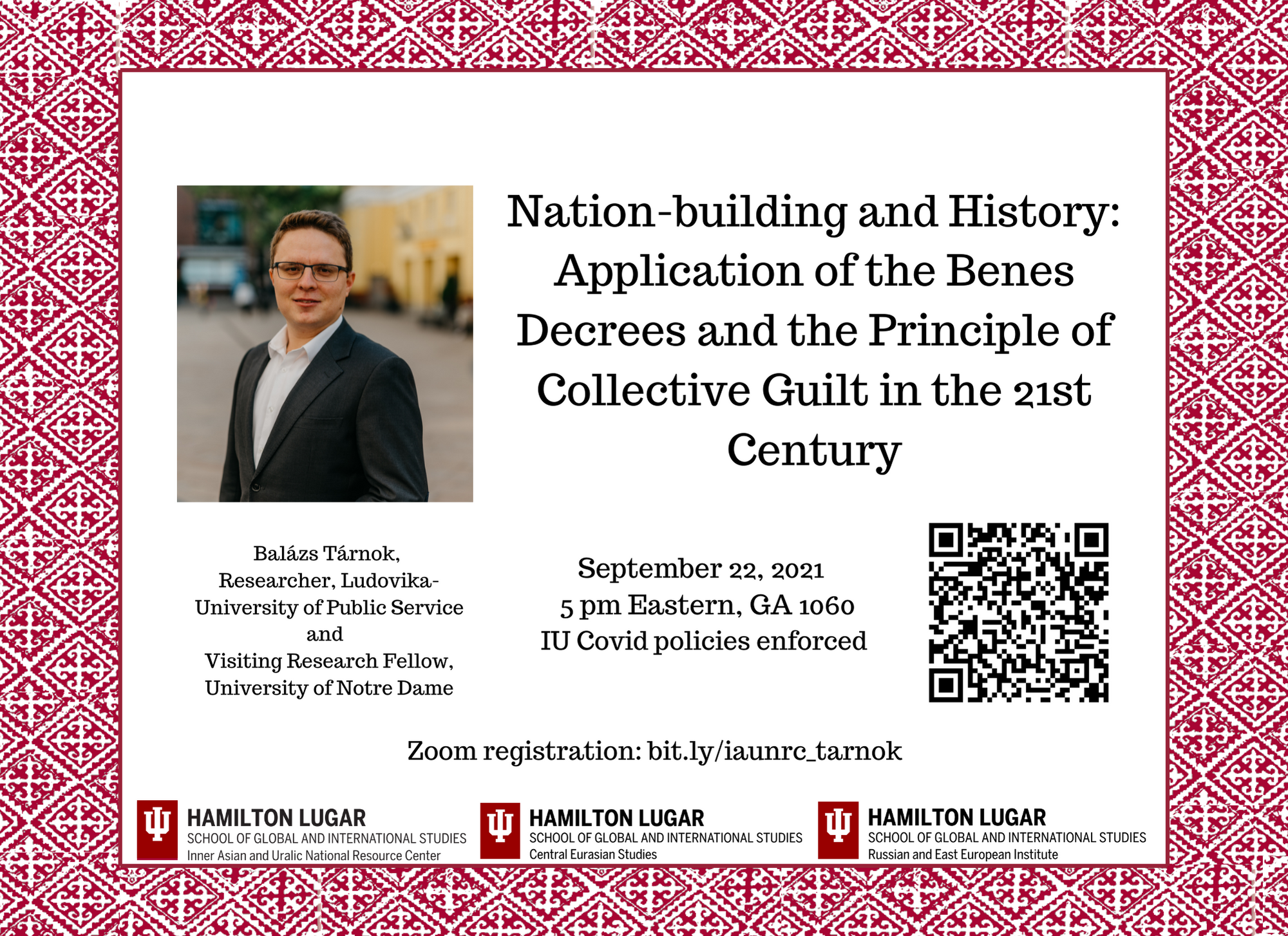On September 22, 2021 Balázs Tárnok, a Researcher at the Ludovika University of Public Service in Budapest and currently a Visiting Research Fellow at the University of Notre Dame gave a lecture at IU Bloomington titled “Nation-Building and History: Application of the Beneš Decrees and the Principle of Collective Guilt in the 21st Century.” Dr. Tárnok’s talk clearly illustrated the fact that the legacy and burden of the major wars of the 20th century are still with us today. The treaties of Paris associated with the end of World War I laid the basis for seemingly unresolvable border and minority issues across much of Central and Eastern Europe, and as is typical in peace treaties the winning side held all the cards. For example, the territorially favored new state of Czechoslovakia ended up with a highly mixed composition that included a large German minority and a smaller Hungarian one as well.
Germany and Hungary were on the losing side in both World Wars, and the issue of what to do with the ethnic German and Hungarian populations in Czechoslovakia during and after the Second World War remained an ambiguous and complicated issue. President Edvard Beneš of Czechoslovakia sought to guarantee his country’s future by restoring its prewar borders and expelling the minorities with the support of the victorious great powers. During World War II and immediately after Beneš issued 141 decrees, 43 from his London exile during the war and 98 in liberated Czechoslovakia. These decrees, based on the principle of collective guilt (or responsibility), placed sanctions on the German and Hungarian minorities in Czechoslovakia, including loss of citizenship, confiscation of property, and deportation.
Dr. Tárnok raised the issue of the relevance and lasting legacy of the Beneš decrees. Slovakia appears to argue that the decrees are merely part of a long-past history. However, cases are still appearing in Slovak courts that cite the Beneš decrees with regard to property rights. Dr. Tárnok argued that in the 21st century the main goal should be to overcome the spirit of the decrees, including taking such steps as halting any further confiscation of property, annulling earlier expropriations, compensation for forced labor, and an apology from the Slovak state.


